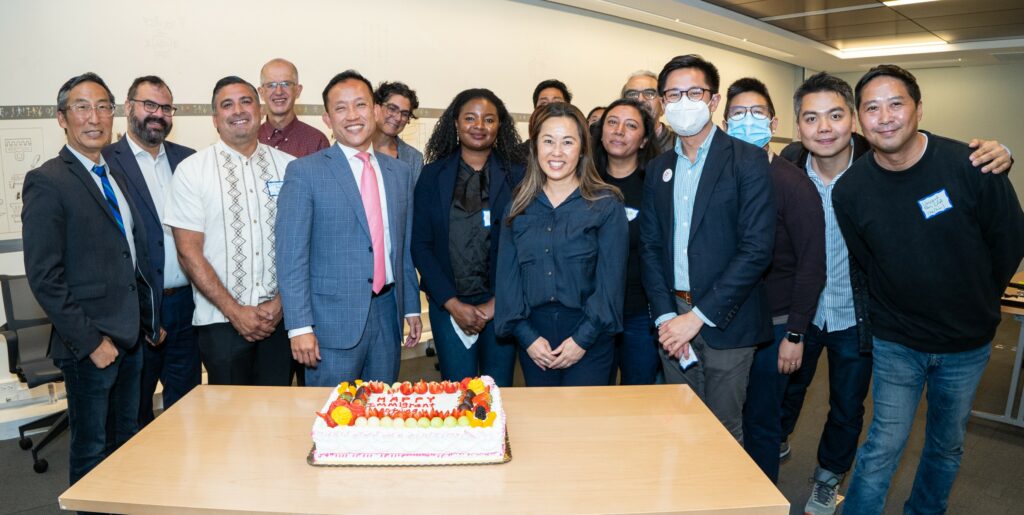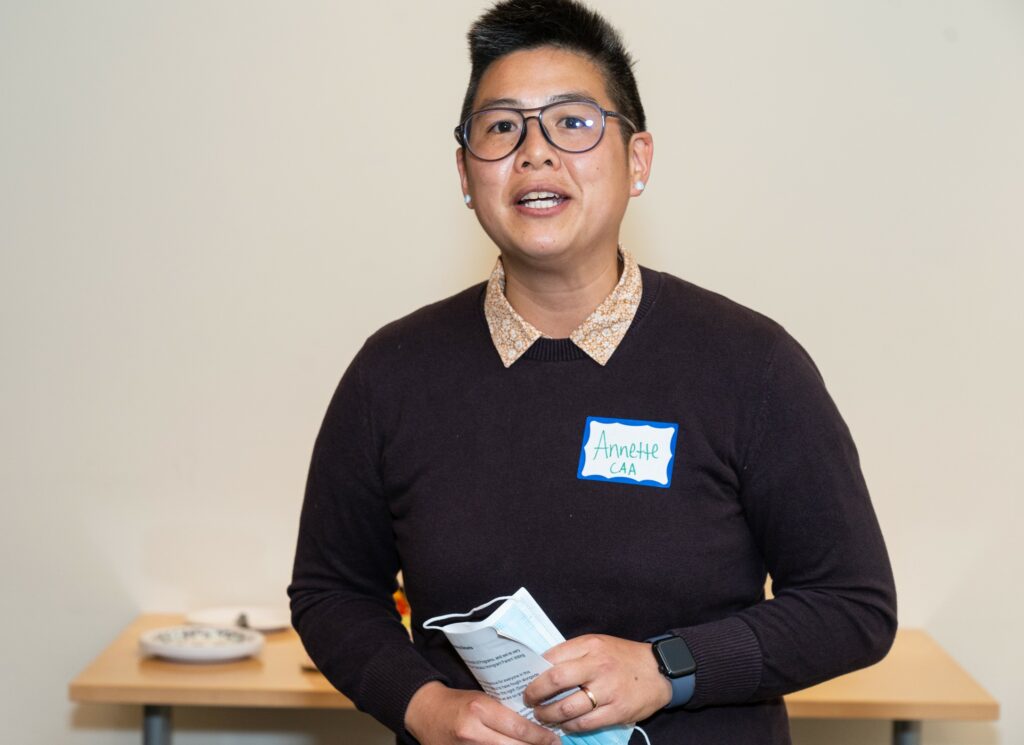We achieved a historic victory on August 8th when the California Court of Appeals ruled that immigrant parent voting in San Francisco is constitutional under state law. James Lacy, a conservative activist who brought this legal challenge, did not appeal the ruling, thereby permanently restoring immigrant parent voting in the City and County of San Francisco.
Eric Mar, Luis Zamora, Gabriel Medina, Jim Emery, David Chiu, Tara Kini, Mirna Vazquez, Mouneissa Wangara, Jenny Lam, Annette Wong, Nick Gee, Jose Ng, Luis Vazquez Gomez, Vincent Pan (Photo Credit: Bob Hsiang)


This ruling is an enormous victory for our immigrant communities. We thank San Francisco City Attorney David Chiu for defending immigrant voting in the courts. This success also could not have happened without the many generations of activists who fought for immigrants to be recognized as legitimate stakeholders in the electoral process. Our journey towards this victory has been long and challenging, but it is a testament to the perseverance of our communities and their dedication to a more inclusive democracy.
Marco Pantelis, Tara Kini, Mouneissa Wangara (Photo Credit: Bob Hsiang)
This victory clears the path for other California municipalities to advance immigrant voting in their cities. Oakland must now pass legislation to codify immigrant voting, which voters approved as Measure S in November 2022. Meanwhile, in Orange County, the Santa Ana Families for Fair Elections launched a campaign with CAA’s support to advance immigrant voting. Last week, the Santa Ana City Council voted to put a measure on the November 2024 ballot. We anticipate more California cities to follow in Oakland and Santa Ana’s footsteps.
Annette Wong (Photo Credit: Bob Hsiang)

Letter in Support for Noncitizen Voting in Santa Ana
Dear Mayor Amezcua and Santa Ana City Council,
Chinese for Affirmative Action (CAA), a 54 year old civil rights organization located in San Francisco, which has led efforts to pass and implement non-citizen/immigrant voting in San Francisco school board elections since 2004, respectfully urges the City Council of Santa Ana to include immigrant voting on the ballot for November 2024.
Immigrant voting cannot wait, especially in a place as diverse and immigrant-dense as Santa Ana. The enfranchisement of any new group of voters has always been difficult, whether for women and people of color, or more recently, youth (in certain municipalities), and in the state of California, parolees with felony convictions. Despite the hesitancy of those who support the status quo, true democracy demands that democratic processes be accessible to those who are governed.
Immigrant voting has been successfully implemented in San Francisco over the course of the last five school board elections. As cities that value our immigrant residents, Santa Ana and San Francisco are blazing a trail forward in California that is a pro-immigrant model for those across the state, nation, and world that are considering similar initiatives. In the face of immense attacks on immigrant rights, particularly over the last several years, we cannot be afraid to take a proactive stance, just as our immigrant brothers and sisters have been fearless in their efforts to live full lives as active participants in our shared communities.
“Expanding the electorate in Santa Ana is legally permissible“
The Court of Appeal of the State of California, First Appellate District, Division Five ruled in Lacy v. City and County of San Francisco et al. that San Francisco can expand the electorate in school board elections for two reasons. First, neither the language of the California Constitution nor its history prohibits local legislation which extends suffrage to noncitizens. Second, the California Constitution’s home rule provisions allow charter cities, like San Francisco, to implement the expansion of the electorate, including in local school board elections. Notably, the Court cites Article XI, section 5 of the California Constitution which denotes considerable authority to charter cities: “It shall be competent in all city charters to provide, in addition to those provisions allowable by this Constitution, and by the laws of the State for: (1) the constitution, regulation, and government of the city police force (2) subgovernment in all or part of a city (3) conduct of city elections and (4) plenary authority is hereby granted, subject only to the restrictions of this article, to provide therein or by amendment thereto, the manner in which, the method by which, the times at which, and the terms for which the several municipal officers and employees whose compensation is paid by the city shall be elected or appointed, and for their removal, and for their compensation, and for the number of deputies, clerks and other employees that each shall have, and for the compensation, method of appointment, qualifications, tenure of office and removal of such deputies, clerks and other employees.” (94 Cal. App. 5th 238, 250-251). The Court referred to this provision as the “Home Rule Provision” and analyzed whether it extended to school board elections as it clearly covered local elections for “municipal officers and employees.” The Court found that the “history of home rule in the California Constitution demonstrates an intent to confer broad authority on charter cities over municipal affairs generally,” including over school board elections (Id. at 253).
This ruling in Lacy is favorable to Santa Ana as it considers noncitizen voting in local elections. First, the Constitution does not bar Santa Ana from passing local legislation to extend suffrage to noncitizens. Second, charter cities like Santa Ana have home rule authority to determine who may vote for municipal officers and employees. Thus, it is legally permissible for Santa Ana to expand municipal elections for all immigrants, regardless of citizenship status, should the city’s voters choose to do so.
In the face of inaction at the federal level on inclusive immigration policy, immigrant voting is an opportunity for Santa Ana to raise a light of hope and belonging to its residents. As the late Dr. Martin Luther King Jr. writes, “Justice too long delayed is justice denied.” We hope that the City of Santa Ana will not deny justice for its immigrant residents, and include immigrant voting on the ballot in November 2024.
Thank you.
Sincerely,
Annie Lee, Esq., CAA Managing Director of Policy
Annette Wong, CAA Managing Director of Programs



